Under the overarching theme of “Delivering Impactful Philanthropy in the Real World,” the Hong Kong Jockey Club Charities Trust hosted its fourth and largest Philanthropy for Better Cities (PBC) Forum on September 9-10, 2024, in Hong Kong. The two-day forum, alongside an array of side events, attracted nearly 100 speakers and over 2,000 delegates from 40 countries and regions, including philanthropists, thought leaders, social entrepreneurs, policymakers, academics, and NGOs.
Hong Kong: Aspiring to be a global philanthropic Hub
Founded in 1884, the Hong Kong Jockey Club is the city’s largest single taxpayer, while its Charities Trust is Asia’s largest charitable donor. This year’s PBC Forum was organised in collaboration with the Institute of Philanthropy, a new “think-fund-do” tank for China and Asia, which was launched at the forum last year through a seed grant of HK$6.8 billion (US$870 million) from The Jockey Club and its Trust.
HKSAR Chief Executive John Lee, in his video address at the opening ceremony, noted that the forum is “a testament to Hong Kong’s commitment to philanthropy.” Lee underscored the government’s ambition for Hong Kong to emerge as a global centre for philanthropy, formalised in the policy statement on developing family office businesses in Hong Kong.
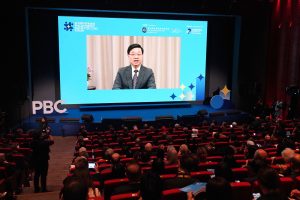
HKSAR Chief Executive John Lee delivers a video address at the opening ceremony of the Philanthropy for Better Cities Forum 2024. (Photo: Hong Kong Jockey Club)
Hong Kong currently boasts about 2,700 single-family offices, with over half of them established by individuals whose wealth exceeds US$50 million. According to a 2024 McKinsey analysis, Hong Kong and Singapore collectively house approximately 15% of the world’s family offices, benefiting from tax incentives, clear regulations, and mature financial ecosystems that offer access to top talent.
In March 2024, a new philanthropic initiative called Impact Link was launched under the Hong Kong Academy for Wealth Legacy established by HKSAR government, aiming to connect donors with impactful social projects. “Our vision is to provide philanthropists with the tools they need to manage their wealth, while channelling their resources into social initiatives that create tangible impact,” Lee said.
Indeed, “High impact” was a recurring theme throughout the panels and sessions I attended. Philanthropic organisations worldwide struggle with understanding their performance. Organisational and cultural differences also mean there is limited agreement across philanthropies on definitions of impact. As wealth and philanthropy grow in Asia, how can these translate into tangible and sustainable outcomes to meet the urgency and scale of social and environmental needs?
Defining ‘High Impact’ Philanthropy in Asia
Morning sessions on the first day explored the distinctiveness of Asian philanthropy. Julia Gillard, Chair of the Wellcome Trust and former Australian Prime Minister, kicked off the day with her keynote speech, “East is East and West is West: How Does Philanthropy Differ?”. She reviewed Western philanthropy’s evolution, which was rooted in domestic challenges before expanding around the world under the influence of globalisation. Recent criticism of Western models—especially around cultural sensitivity and collaboration with governments—has prompted calls for more tailored approaches to global philanthropy.
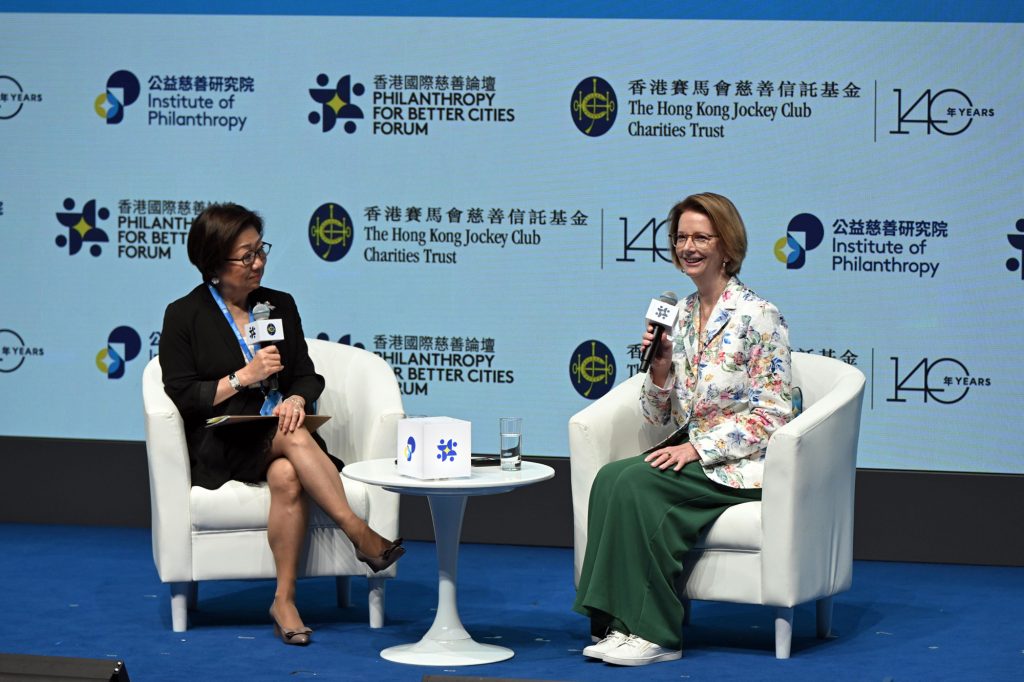
Moderated by Laura M. Cha, Trustee of the Rockefeller Foundation, Former Chairman of Hong Kong Exchanges and Clearing Ltd (left), Julia Gillard, Chair of the Wellcome Trust, Chair of the Global Institute for Women’s Leadership and former Prime Minister of Australia, (right) delivered the opening keynote: “East is East and West is West: how does philanthropy differ and how can we best work together?” (Photo: Hong Kong Jockey Club)
Gillard left the audience with a thought-provoking question: As wealth in Asia grows, will Asian philanthropy follow the same path as the West?
This query set the stage for the panel that followed, titled “What is Impact? Launching a New Systematic Assessment of Asian Giving”. The panel began by presenting a new research report from the Bridgespan Group, supported by the Institute of Philanthropy, which examined what high-impact philanthropy looks like in Asia.
The report identified the 20 largest global and Asian institutional philanthropies (based on their giving between 2018-2022) and highlighted the strategies they use to achieve lasting impact. The findings revealed that five of Asia’s largest 20 philanthropic funders are from mainland China, with two from Hong Kong, including the Jockey Club Charities Trust—the only Asian funder to make the global top 20. While education and health dominate the concerns of both Asian and global funders, the report found that Asian foundations are more likely to be corporate or state-linked. It also noted that half of Asia’s largest funders were established in the past 20 years, prefer to operate their own programs rather than give grants, and frequently partner with governments to align with national development agendas and scale successful programs.
William Foster, Managing Partner at Bridgespan, moderated a discussion with foundation representatives from the global 20 and Asia 20 lists about what “high impact” means for their work. Jagannatha Kumar, CEO of Reliance Foundation in India, emphasised that high impact goes beyond financial contributions—it requires the creation of replicable models for others, including governments, to adopt. Ichiro Kabasawa, Executive Director of the Nippon Foundation, agreed, noting that foundations can initiate small scale model cases, which can later be expanded by government or stakeholders to achieve broader, systemic change.
Benny Lee of the Singapore-based Tanoto Foundation, shared an example of how foundations can be the “risk taker” in collective actions with different stakeholders. In Indonesia, Tanoto joined with the Bill & Melinda Gates Foundation in 2019 as a founding donor to the World Bank Multi-Donor Trust Fund for Indonesia Human Capital Acceleration, an initiative that catalysed US$14.6 billion from the Indonesian government to reduce stunting due to chronic malnutrition. Lee noted that when Tanoto and Gates joined the trust fund, it had the effect of “de-risking” the investment and created a catalyst for other funders. “When you talk about impact, different stakeholders have different takes on this. We need to create a common language,” said Lee.
Jennifer Stout, Deputy Director at the Gates Foundation, remarked that as government funding for global health decreases and wealth in Asia grows, Asian philanthropy has a unique opportunity to drive global impact due to its experience partnering with governments.
Another panel, “the Evolution of Eastern Giving”, took a closer look at how traditional practices are merging with modern philanthropic strategies in Asia. Panelists from a foundation, philanthropy research institute and an investor platform agreed that although the relational approach driven by deep cultural and spiritual traditions in Asia still plays a significant role in directing philanthropic efforts toward local communities and domestic causes rather than international ones, the emerging form of giving is more collective and tech powered, with the younger generation increasingly taking on global issues like climate change and more comfortable with their philanthropy being open and transparent.
To trust or to measure?
After a full day of discussions on trends, practices and challenges in today’s philanthropy, the forum offered an opportunity to reflect on philanthropy’s more fundamental and philosophical questions. A standout moment was the keynote speech by Nobel Economics laureate Michael Spence’s entitled: “The Economics of Giving: What Makes Us Give? What Stops Us from Giving More?”
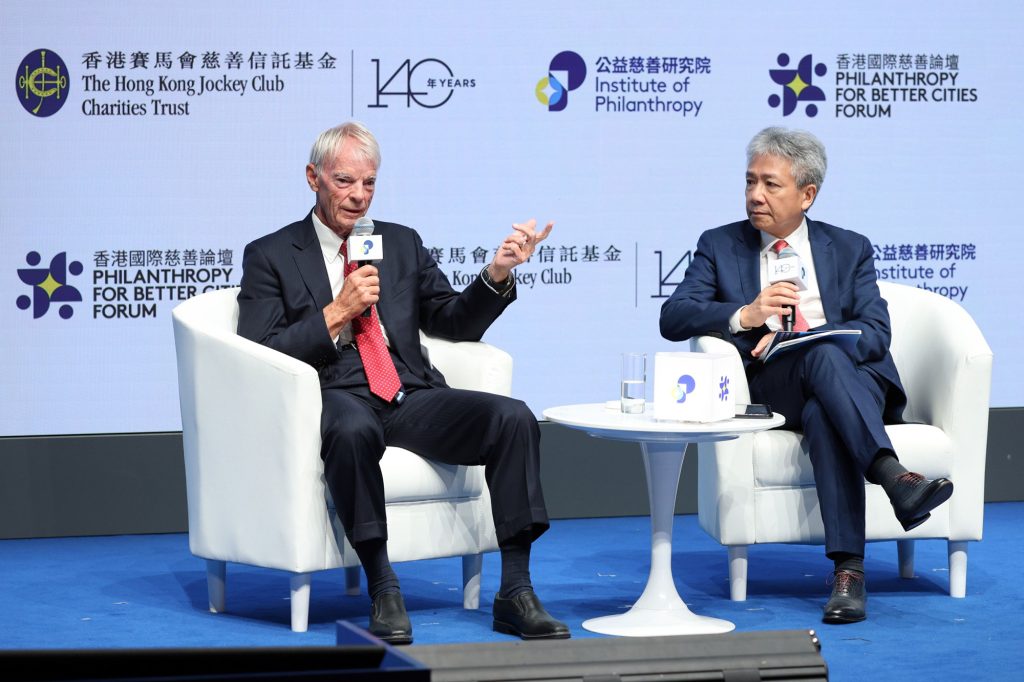
Delivering the second keynote entitled “The Economics of Giving: What makes us give? What stops us from giving more?” was Professor Michael Spence, 2001 Nobel Laureate in Economics, Philip H. Knight Professor and Dean Emeritus of the Stanford Business School and Senior Fellow, Hoover Institution of Stanford University (left). The moderator was Professor Stephen Cheung, Voting Member of The Hong Kong Jockey Club, Vice-Chairman of CMB Wing Lung Bank and Former President of the Education University of Hong Kong (right). (Photo: Hong Kong Jockey Club)
Spence pointed out that although the fundamental motivation for philanthropy is the desire to do something good for one’s fellow human beings directly or through institutions that matter, recognition is an important fact for philanthropy giving—not just to assess impact, but also for identifying people and organisations that are genuinely making a difference. Spencer suggested that such a gap could be filled by a credible intermediary” to connect initiatives and donors. “ESG is in trouble because of issues such as greenwashing. Impact measurement can play a pivotal role in combating greenwashing in philanthropy.”
His comments struck a chord. As someone who has worked in the sector for nearly two decades, I have mixed feelings about measurement. Yes, it’s necessary for proving value and learning from failures, but too often I’ve seen small nonprofits struggle with the burden of endless paperwork to meet funders’ varied metrics. Ultimately, many decisions boil down to the funder’s trust in an organisation’s leadership rather than data-driven analysis.
A related fireside chat on the second day, “Redefining Impact: Are We Measuring the Right Things right?” revisited this tension. Jason Saul, founder of Impact Genome, argued that the philanthropic sector lacks the data standardisation found in other industries, limiting its ability to effectively predict and compare outcomes. Saul’s Impact Genome project seeks to establish three pillars for “Impact Science”: data standardisation, synthesis methodologies, and predictive benchmarking.
Saul stressed the need to shift conversations on measurement from metrics to outcomes, and advised nonprofits to stop responding to every grant-maker’s specific metrics. Saul’s comments were echoed by Christopher Murray, Institute Director at Institute for Health Metrics and Evaluation, who pointed out that many organisations lack the capacity to produce quality data due to capacity, cost and time.
When asked by the moderator, Henry TIMMS, Chief Executive Officer of Brunswick Group, what advice would you give to the giving side, Saul pointed out that philanthropists and foundations need to work collectively to invest into the infrastructure for better measurement, rather than focusing solely on the measurement of their own grants. “In the U.S., 50% of all grants go to just 1% of charities, which is probably the same in Asia and other part of the world”, Saul observed.
Both panelists acknowledged that not everything can be measured. Saul referred to the MacArthur Genius Awards and noted that “sometime the outcome is the activity itself. You just want it to exist.”
A report by the Institute of Philanthropy and McKinsey, distributed at the Forum, pointed out that “trust-based philanthropy”—gaining traction in the West—has yet to gain popularity in Asia. In this region, where relationships have always formed the foundation of giving, philanthropic leaders consider trust to be at the core of what they do, while the term “trust-based philanthropy” coined by the Whitman Institute, includes specific terms such as provide multi-year unrestricted funding. It is also notable that funders in Asia prioritise co-creation and participatory approaches. The report suggested that as Asian philanthropies continue to expand and evolve, they can adopt a “trust and measure” approach to improve how they measure impact without imposing an undue burden on their beneficiaries.
Launch of the commission on Asian philanthropy
A major highlight of the forum was the launch of the Commission on Asian Philanthropy, an alliance designed to build an “in Asia, for Asia” ecosystem that professionalises philanthropic practice and unleash Asian philanthropy’s full potential for social good.
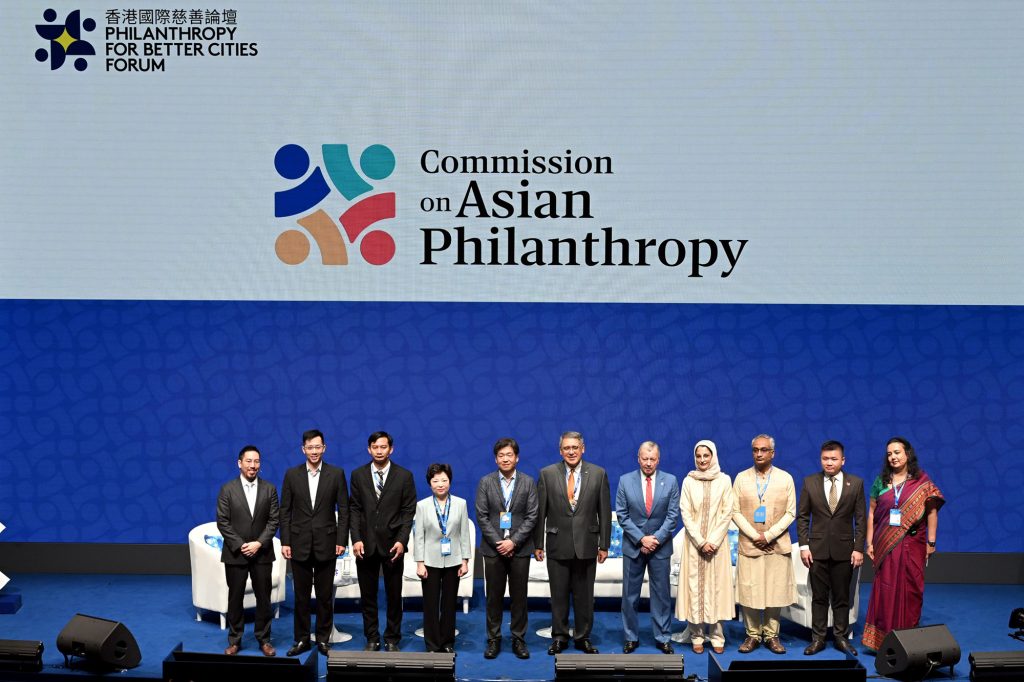
The second day of the forum opened with a plenary session entitled “Launch of the Commission on Asian Philanthropy: The Asian Way of Giving: Unleashing the power of Asian philanthropy for a sustainable future.” The launch of the Commission on Asian Philanthropy was announced during this session. This group photo features Lester Huang, Club Steward and Chairman of the Institute of Philanthropy (centre); Winfried Engelbrecht-Bresges, Club CEO and Director of the Institute of Philanthropy (5th right); Ichiro Kabasawa, Executive Director of The Nippon Foundation, also representing APHIC (5th left); Beili Shen, Vice Chairperson of China Soong Ching Ling Foundation (4th left); Haryo Mojopahit, Managing Director, IDEAS Dompet Dhuafa Republika (3rd left); Her Highness Princess Nouf bint Muhammad AlSaud, CEO of King Khalid Foundation (4th right); Aditya Natraj, CEO of Piramal Foundation (3rd right); James Li, CEO of Tencent Charity Foundation (2nd right); Benny Lee, CEO of Tanoto Foundation (2nd left); Naina Subberwal Batra, CEO of AVPN (1st right); and Warren Ang, Founder and CEO of Voyage (1st left). (Photo: Hong Kong Jockey Club)
Co-convened by the Asia Philanthropy Congress, a Nippon Foundation initiative and the Institute of Philanthropy, the commission brings together a diverse group of influential foundations in the region as founding commissioners. These include the China Soong Ching Ling Foundation, the Hong Kong Jockey Club Charities Trust, the Tanoto Foundation, IDEAS Dompet Dhuafa Republika, King Khalid Foundation, Nippon Foundation, Piramal Foundation, Rainmatter Foundation, Tata Consultancy Services and Tencent Charity Foundation.
When asked by the audience how this platform would differentiate itself from others, the commissioners emphasised their intention not to promote a single model but to replicate successful ones and address the critical issue of insufficient knowledge sharing, which is vital for empowering the ecosystem. “We want to showcase the good practices of Asian philanthropies that are on par with those in the West,” responded Ichiro Kabasawa, Executive Director of the Nippon Foundation.
Closing plenary: the transforming power of arts and sports
The forum concluded on a high note with a lively plenary session on how investments in arts and sports yield high social returns. Olympic gold-medalist Tom Daley, Academy Award-winners Dustin Lance Black and Ruby Yang, and Jockeys Championship winner Vincent Ho, shared personal stories illustrating how sports and the arts have transformed their lives.
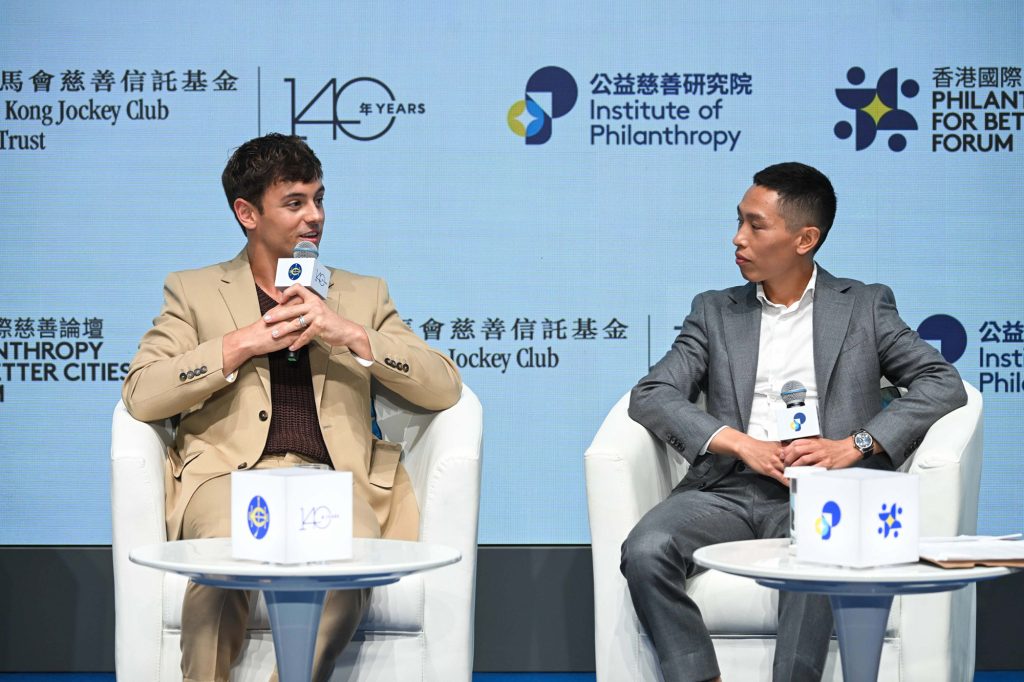
Tom Daley, gold-medal-winning Olympic diver (left) and Vincent Ho, 2023 LONGINES International Jockeys’ Champion, Jockey, The Hong Kong Jockey Club (right). (Photo: Hong Kong Jockey Club)
The session highlighted the critical need for philanthropies to invest in art and sports to foster creativity and mental well-being among marginalised communities.
“Art is about pushing the boundaries”, Black stated, “investing in the arts is crucial if you want the young generation in your country to embrace innovation.”
Trisha Leahy, the session’s moderator and former CEO of the Hong Kong Sports Institute, emphasised that while arts and sports promote holistic development, they often rank low on philanthropic priorities. She raised the question of how we can leverage technology to foster a sense of creativity in the younger generation, who are increasingly immersed in AI, technology, and social media.
“Social media brings out the best and the worst of humankind,” responded Tom Daley. When Daley won his first gold diving medal at the 2020 Tokyo Olympic Games, images of him knitting poolside circulated the globe, with his designated knitting Instagram account gaining a million followers overnight. “In my case, it helps us to see all the different stories beyond the formal sports scene ,such as the Olympics.” An LGBTQ+ activist, Daley has used his platform to propel the conversation around LGBTQ+ rights.
Final Thoughts
The PBC 2024 underscored the growing role of Asian philanthropy in addressing global challenges. Parallel sessions over the two–day event covered a variety of emerging topics, including the role of philanthropy in supporting global health research and interventions, climate adaptation, family offices in impact financing, positive ageing, gender equality, the role of AI and media, among others. Through collective action, trust, and innovative approaches to impact measurement, Asian philanthropists are carving out their unique path.
As I glanced through McKinsey’s paper on trust and measurement in Asian philanthropy during my flight back to Tokyo, I noticed an interesting detail: the Mandarin word for “impact” is “yingxiang” (影响), which translates more accurately to “influence” rather than “impact.” In Japan, where I live, the word “impact” has been adopted as a loanword, commonly used for concepts that do not exist in Japanese. The good news is that we don’t need a one-size-fits-all definition of “impact” or “trust”, as long as they effectively communicate and resonate with the stakeholders involved. Just as the love of mankind is expressed in many different languages and forms, one of those expressions is “philanthropy.”
Fan Li is East Asia Regional Representative at Alliance magazine.


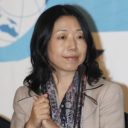




Comments (0)